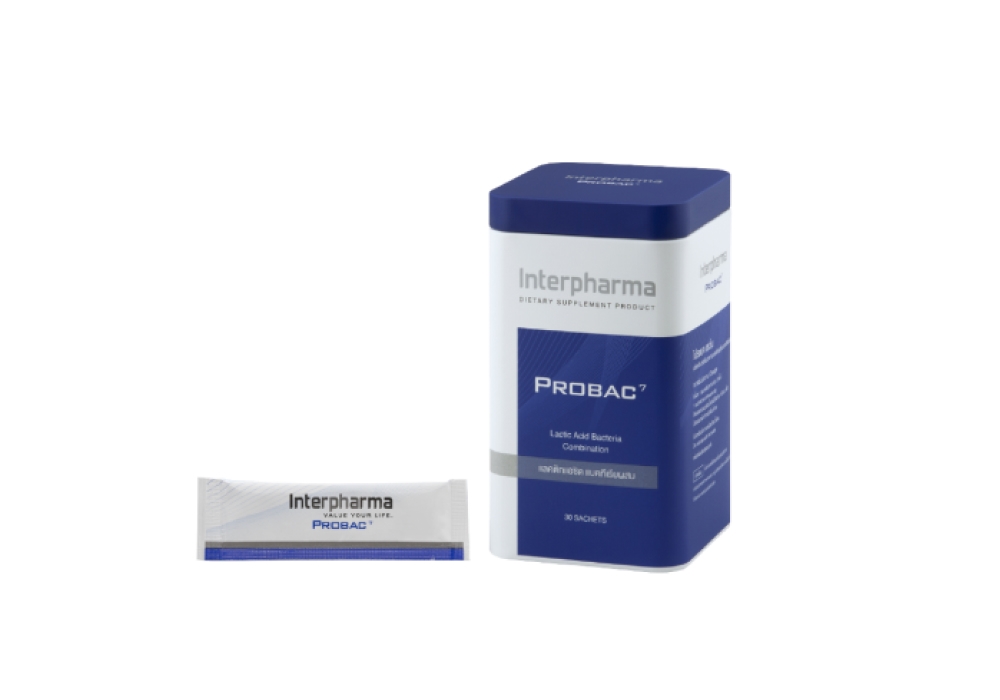Depressed or Just Burned Out? A Checklist to Differentiate the Emotional Dips of Working People

Depressed or Just Burned Out?
A Checklist to Differentiate the Emotional Dips of Working People
Feeling exhausted? Dreading waking up for work? Does the job you once loved no longer seem interesting? These emotions are warning signs that many office workers are facing.
But the important question that often arises is: "Am I just burned out (Burnout) or am I entering a state of depression (Depression)?"
Although both conditions present similar symptoms—such as fatigue, hopelessness, and reduced productivity—they actually have clear and distinct differences.
Understanding this difference is the first step toward proper self-care. This article will help you check the warning signs and introduce an approach to caring for your mental health from the source using “psychobiotics.”
Burnout: Focused on "Work"
Burnout typically stems from "chronic stress in the workplace." It is a reaction specifically to the pressure and exhaustion from work. You can check for these symptoms:
- Emotional and physical exhaustion: Feeling completely drained, as if your energy is depleted. Just thinking about work is tiring.
- Feeling of numbness or detachment towards work (Cynicism): Starting to feel contempt for the job, viewing colleagues negatively, or trying to distance oneself from work.
- Reduced productivity: Feeling incompetent, unable to complete tasks as before, and lacking work motivation.
Key observation: Burnout is often limited to work-related matters. You may still feel happy or energetic when participating in other non-work-related activities, such as traveling, playing sports, or engaging in hobbies.
Depression: Focused on "Everything in Life"
Depression is an emotional disorder that affects feelings, thoughts, and daily life in every aspect, not just work. The symptoms are often prolonged and continuous. You can check for the following:
- Depressed mood, hopelessness: Feeling sad, empty, or down almost all the time.
- Loss of interest in everything: No longer finding pleasure in things you used to enjoy, whether it's hobbies, meeting friends, or activities that once brought happiness. (This is a key difference from Burnout).
- Feelings of worthlessness or guilt: Self-blame, feeling not good enough in every regard.
- Clear sleep problems: Either insomnia (unable to sleep) or hypersomnia (sleeping too much).
- Fatigue even without activity: Feeling drained even after resting.
Depression Test
To assess if our mental health is still okay, enabling us to be aware and plan to cope effectively.
Click https://betterhealthspan.interpharma.co.th/depression-test/
The Dangerous Connection: When "Burnout" Leads to "Depression"
Although different, Burnout is a significant risk factor that can lead to Depression if not managed correctly. Imagine being stressed from work every day, your body constantly releasing stress hormones (cortisol), your brain fatigued, and your sleep disrupted.
When this condition accumulates chronically, it begins to affect brain chemistry, until the feeling of numbness towards work turns into a feeling of hopelessness towards "everything" in life. Therefore, if you notice signs of burnout, you should not leave it unresolved. The longer it is neglected, the more likely we may develop depression in the end.
Regardless of the Cause, the "Brain and Gut" are Key
Whether you are "burned out" or "depressed," both conditions share common factors: "accumulated stress" and an "imbalance of neurotransmitters" like serotonin and dopamine.
Modern research finds that our "gut," or "second brain," plays a crucial role in our mood. When we are stressed, whether from work or personal issues, the microbial balance in our gut is disrupted, and the production of serotonin (the happiness chemical) in the gut—over 90% of it—drops immediately. This is why caring for the gut is a new approach to mental healthcare, leading us to "Psychobiotics," or probiotics specifically for mental health.
Probac Mood: An Emotional Care Innovation for Working People
For office workers facing emotional downturns, whether from depression or just burnout, Probac Mood is an option designed specifically to help rebalance from within. This is because Probac Mood uses the probiotic strain Lactobacillus plantarum PS128, a psychobiotic supported by research showing it works via the Gut-Brain Axis. This provides the following benefits to the body:
- Reduces the stress hormone (cortisol): Helps the body and brain relax from the state of high alert (which is a cause of Burnout).
- Increases serotonin and dopamine: Helps to balance mood, reduce feelings of sadness and hopelessness, and increase motivation (which is necessary to combat depression).
Conclusion
Differentiating between depression or just burnout is a crucial first step. If you find your symptoms align with depression—affecting all parts of your life—consulting a doctor or specialist is essential.
Regardless of your condition, taking care of yourself from the inside with Probac Mood (PS128) is one approach to help build a stronger emotional shield, ready to face workplace challenges with greater balance.













